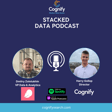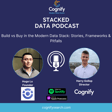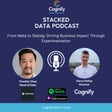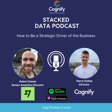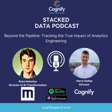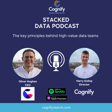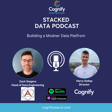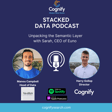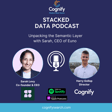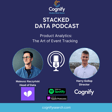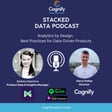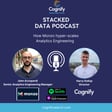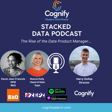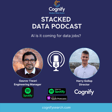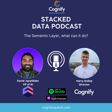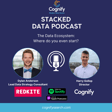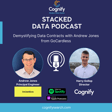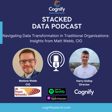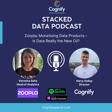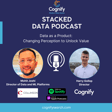
033 - Digestible, Defendable, Actionable – How to drive impact with Data
Digestible. Defensible. Actionable.
What does it really take to drive impact with data?
Too often, analysts are left wondering:
“Why didn’t anyone do anything with that insight?”
This week on the Stacked Data Podcast, I’m joined by Sam Marks, Director of Analytics & Business Strategy at the Boston Bruins, to explore the gap between finding insights and driving action — and how to close it.
Sam shares the Digestible, Defensible, Actionable framework he uses to turn analysis into outcomes, covering:
✅ What makes an insight digestible (and where analysts go wrong)
✅ How to make your work defensible and credible
✅ What separates an interesting insight from an actionable one
✅ How to overcome inaction from stakeholders
✅ Real-world examples of the framework in action
This one’s packed with tactical advice for any data professional tired of their work getting stuck in slide decks.
